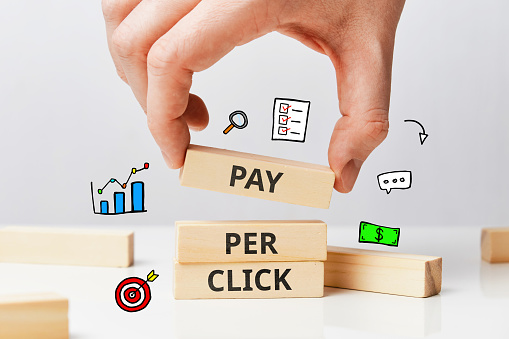A PPC Google Ad is an online advertisement that allows businesses to display their products or services to potential customers searching for related terms on Google. Businesses can choose what keywords they want their ad to appear for, and they only pay when someone clicks on it. This makes PPC ads an effective way for businesses to reach their target audience and get more leads.
What Is An Example Of PPC?
A campaign can be as simple as using keywords and ad copy to target a specific audience. For example, if you sell perfume, you could use Google Ads to promote distinctly branded fragrances. A well-designed ad copy can draw people in and increase sales. In addition, you can use PPC to target people who are interested in your brand. The conversion metric is the most important thing to consider when creating a PPC campaign. The conversion rate is the percentage of people who purchase after clicking on your ad. Another metric is the conversion ratio, which measures how many users convert into customers. A landing page is a web page you direct a user to after clicking on your ad. This page should be highly optimized to convert users into customers.
What Is The Difference Between Paid Ads And PPC?
While the terms may sound similar, there are differences between the two. Paid advertising and pay-per-click (PPC) advertising both use relevant keywords to generate website traffic through search queries. However, there is a crucial difference between the two: with paid advertising, businesses pay for their ad to appear at the top of the search results page, regardless of whether anyone clicks on it. With PPC ads, businesses only pay when someone actually clicks on their ad. As a result, PPC can be a more cost-effective way to generate leads and drive website traffic. However, it is important to note that both paid ads and PPC require ongoing optimization and management in order to be effective.
Using a PPC campaign to promote your business can be a cost-effective way to reach new clients. PPC ads are based on the terms used by users to search for products or services. For example, if someone searches for “dentist,” they’re more likely to click on the ad and visit your website. When choosing a PPC ad, look for one with a high-Quality Score (QS). Quality Score is Google’s evaluation of the quality of your ad based on the relevance of your content. A high score will boost your ad’s rank and lower your cost-per-click. Quality Score is determined by various factors, including your ad’s relevance, landing page experience, and historical performance with Google Ads. Google’s overall quality score indicates whether a product or service is relevant and provides a good user experience.

What Is The Main Purpose Of a PPC?
PPC is one of the digital marketing channels where businesses can drive traffic and conversions using search engines. This technique is relatively simple to use and can benefit your business. However, you must learn how to properly launch your campaign, optimize it, set goals, and measure its results. PPC advertising helps businesses target their exact customers, letting them alter their bids based on data, such as time of day or location. PPC also offers multiple ad formats, which can be tailored to drive success for specific businesses. The most basic format is the keyword match ad. Several tools offered by Google help business owners optimize their PPC campaigns. These tools provide detailed information on how keywords and ad groups perform in Google’s search results. They can also help businesses plan their budgets and bids for keywords.
What Is The Downside Of PPC?
When you use PPC Google ads, you pay for every click on your listing in the search results. That can add up to a huge cost if you are desperate to remain at the top. However, it will give you high visibility, which can be worth the money. Getting a good position on Google can result in traffic lasting for months or even years. Nevertheless, it’s important to remember that the best way to get top rankings is to build up your content assets and ROI over time. PPC is very popular among online audiences, yet some people want to avoid seeing ads on SERPs. This is because they may be turned off by the ads in the sidebar or on top of a page. Therefore, you have to come up with a good PPC strategy
How Do PPC Ads Work?
Pay-per-click (PPC) advertising is a simple concept. You can choose how many words or phrases you want to advertise, and the ads that show up will be based on how many times someone has clicked your ad. The more people who click your ad, the more money you can bid on. However, you need a huge budget to reach the audience that you need. With PPC advertising, you can target specific customers based on their interests, demographics, and more. You can increase sales by doing this. You can also adjust your bids based on data about the audience you’re targeting. This allows you to bid on the right audience and reach them when they’re actively looking for your services or products. Plus, PPC advertising allows you to target specific audiences and gain data insights that will help you improve your campaign’s results.
Conclusion
Search Engine Optimization (SEO) is the foundation of digital marketing. Google Ads allows you to set a limit on your daily and monthly ad spending, but first, you need to create a Google Ads account. Google Ads also allows you to promote your business outside Google Search by showing ads on relevant websites in the Google Display Network (GDN). SEM (Search Engine Marketing) is a broad concept that explains how to enhance a website’s visibility on search engine results pages (SERPs). To display the best-performing headlines and ad copy to users, you can enter up to 15 headline variations and four ad copy variations. The Google Ads tool allows you to stay within your monthly cap and pause or stop your ad spending at any time. You can choose between various ad formats, including text, image, mobile, and video.
With a Google Analytics integration, you can get even more detailed information about clicks, impressions, keywords budget, etc. With nearly two decades of experience in paid advertising, Google Ads has a lot of authority and seniority.
